America may have cinnamon rolls and Sweden its kardemummabullar, but I’m with Jane Grigson when she describes our own Chelsea buns as “the best of all buns on account of their buttery, melting sweetness, and the fun of uncoiling them as you eat”. Named after a renowned 18th-century bakery near Sloane Square in London, these sticky treats are best eaten fresh from the oven, preferably your own.
Prep 10 min
Rise 1-2 hrs
Cook 1 hr
Makes 9
200ml milk
60g butter
450g plain white flour plus extra for dusting
2 tbsp caster sugar
½-1 tsp salt
5g quick yeast
1 egg, lightly beaten
Zest of 1 lemon
1 tsp mixed spice
For the filling
30g butter, slightly softened
35g soft brown sugar
100g currants
For the glaze
1 tbsp milk
2 tbsp caster sugar
2 tbsp demerara sugar
1 Melt the butter
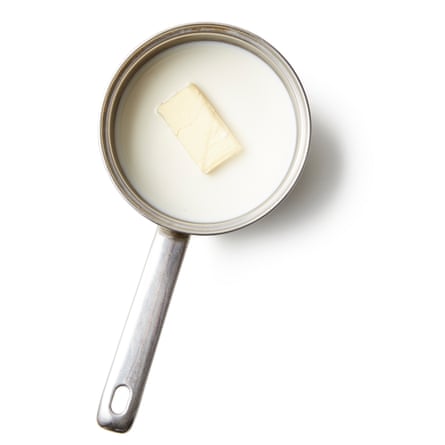
Put the milk and butter in a small pan and heat gently to melt the butter, or do this in the microwave, then give it a stir. (If the mixture comes out steaming hot rather than warm, set aside to cool slightly before use, as anything above 55C will kill the yeast, meaning your buns won’t rise.)
2 Make the dough
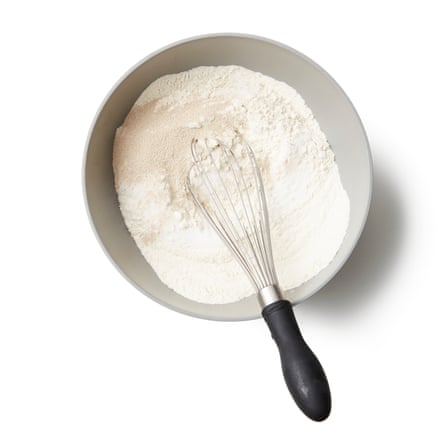
Meanwhile, put the flour, sugar, salt and yeast in a large bowl and whisk to combine – you could use bread flour instead, if that’s what you have, though plain flour will give a softer crumb. Pour in the warm milk and butter mix (no need to wash the pan/bowl for now) and the beaten egg, and stir until it comes together into a soft dough.
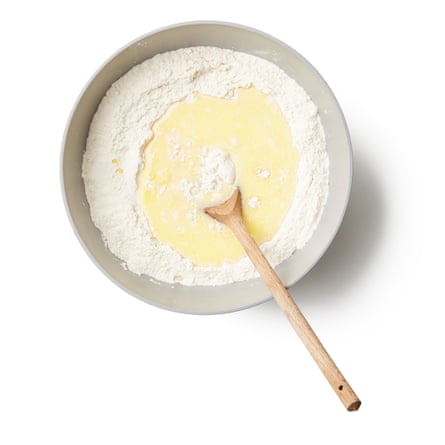
3 Add any flavourings
Mix in the lemon zest (or orange, or indeed any citrus zest, as long as it’s unwaxed or well scrubbed) and spice.
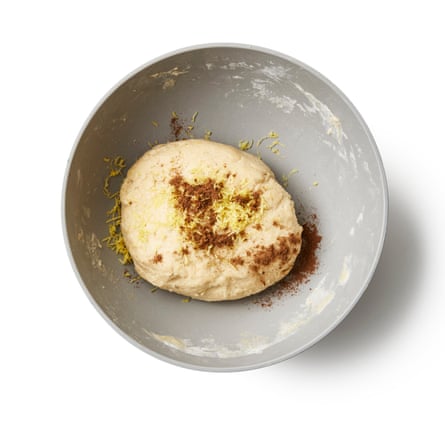
If you don’t have mixed spice, you could use roughly the same amount of ground cinnamon, nutmeg, ginger, mace or cardamom, alone or in combination (but don’t overdo it, as cinnamon can inhibit yeast activity).
4 Knead the dough, then rest
Knead the dough on a clean surface for about 10 minutes, until smooth and elastic. You could use a food mixer fitted with a dough hook for this, in which case it will take about half the time.
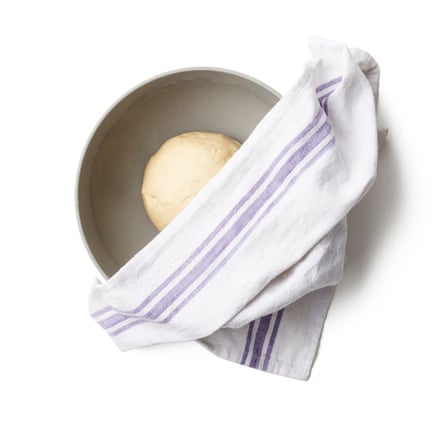
Put in a lightly greased bowl, cover and leave in a draught-free place until roughly doubled in size (probably one to two hours).
5 Add the butter and dried fruit
Grease a tin about 27cm square. Turn out the dough on to a lightly floured surface, knock back and roll out to a rectangle about 25cm x 35cm, with one of the long sides facing you.
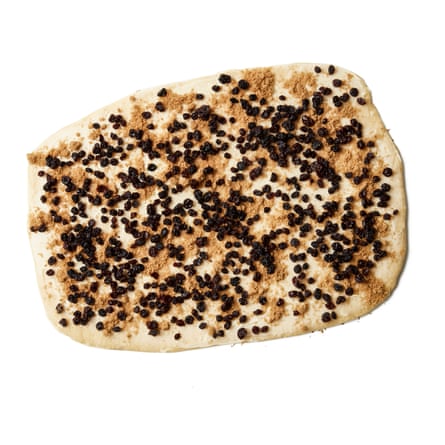
Smear the butter on top, then scatter evenly with the sugar and currants (you could use any kind of dried fruit, but chop it to currant size if it’s large).
6 Roll, then cut
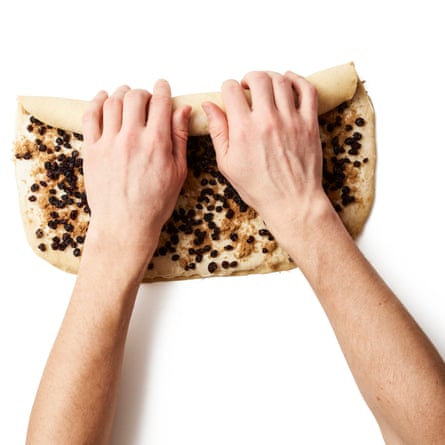
Lightly press the long side nearest you down on the work surface to anchor it, then take hold of the opposite long side and roll it towards you, keeping the roll as tight as possible.
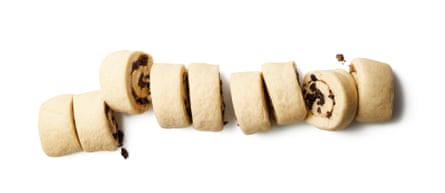
Use a sharp knife to cut the sausage of dough into nine even pieces, taking care not to squash them as you do so.
7 Prove again …
Arrange the pieces in the greased tin swirl-side up, making sure they’re not too close to each other or the edges of the tin, then cover and leave to prove in a draught-free place until the pieces are touching each other (probably another 30-45 minutes).
Towards the end of this time, heat the oven to 200C (180C fan)/390F/gas 6.
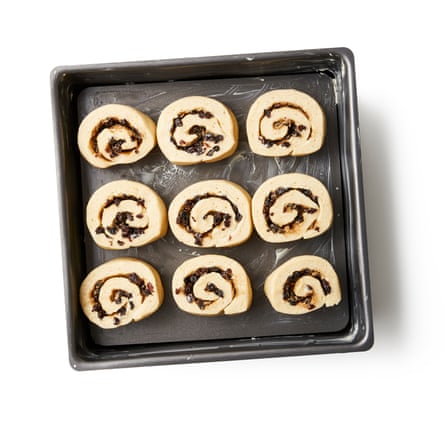
8 … then bake
Bake the buns for 20-30 minutes, until golden brown, keeping an eye on them and covering them loosely with foil if the fruit starts to burn towards the end of the cooking time. After about 15 minutes, warm the remaining tablespoon of milk in the small pan or bowl you used to melt the butter, and stir in the caster sugar to dissolve.
9 Glaze the buns
As soon as the buns come out of the oven, brush them with this sugary glaze, then scatter with the demerara sugar. Leave to cool before tearing apart. The buns are best eaten on the day they’re made, but they do freeze well, either at the end of step 7, frozen in the tin and well wrapped (defrost before baking), or baked.
"food recipes" - Google News
May 31, 2023 at 06:00PM
https://ift.tt/XVPFUsc
How to make Chelsea buns – recipe - The Guardian
"food recipes" - Google News
https://ift.tt/nw72uGZ
https://ift.tt/LFJ1cjB

No comments:
Post a Comment